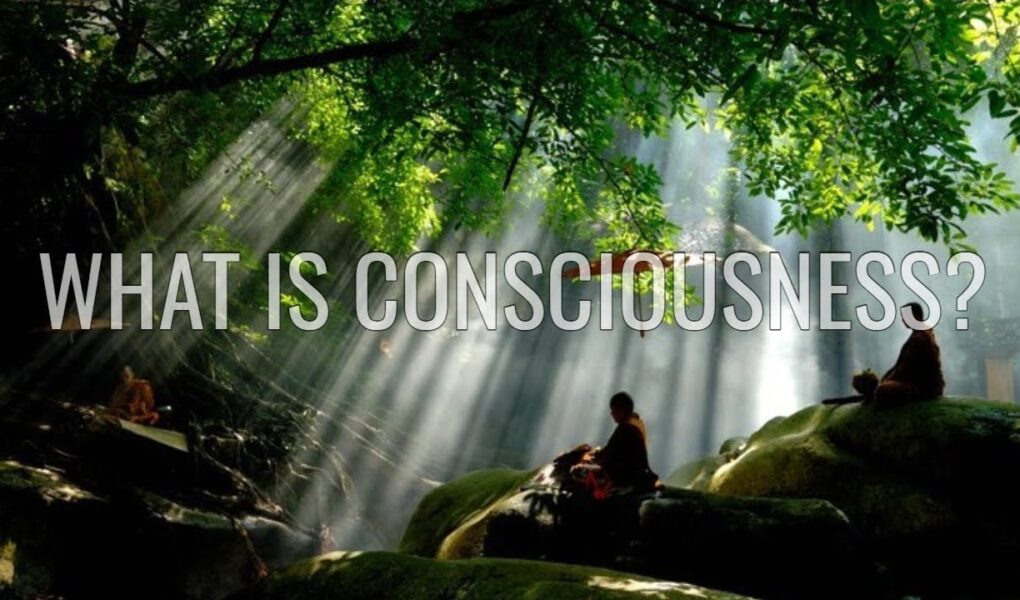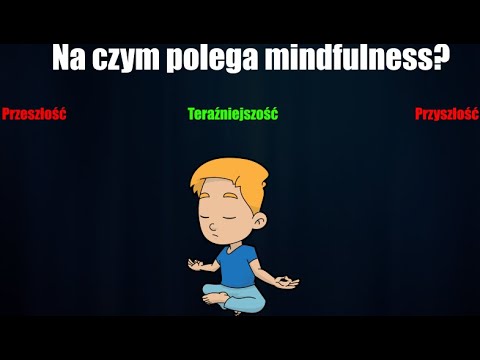Ecstadelic Media
Watch the full documentary on TUBI (free w/ads):
https://tubitv.com/movies/613341/consciousness-evolution-of-the-mind
IMDb-accredited film, rated TV-PG
Director: Alex Vikoulov
Narrator: Forrest Hansen
Copyright © 2021 Ecstadelic Media Group, Burlingame, California, USA
*Based on The Cybernetic Theory of Mind eBook series (2022) by evolutionary cyberneticist Alex M. Vikoulov, available on Amazon:
https://www.amazon.com/dp/B08R2K7ZK2
as well as his magnum opus The Syntellect Hypothesis: Five Paradigms of the Mind’s Evolution (2020), available as eBook, paperback, hardcover, and audiobook on Amazon:
https://www.amazon.com/Syntellect-Hypothesis-Paradigms-Minds-Evolution/dp/1733426140
The study of consciousness needs to be lifted out of the mysticism that has dominated it. Consciousness is not just a matter of philosophy or spirituality. It’s a matter of hard science. It’s a matter of understanding the brain and the mind – a pattern structure made out of information. It’s also a matter of engineering. If we can understand the functionality of the brain, its neural code, then we can build the same functionality into our computer systems. We should recognize that our brain is not a “stand-alone” information processing organ, though: It acts as a central unit of our integral nervous system with recurrent data exchange within the entire organism and the Universe. Artificial consciousness may be within our grasp, however, not the way many AI researchers envision.
There’s no consensus on what produces consciousness, but everyone regardless of metaphysical views can agree what it is like to be conscious. Given that consciousness is subjectivity, what consciousness is like is what consciousness is.
Different species have a variety of their biological information processors which unsurprisingly results in qualia diversity. All species live in their own unique sensory universes. Consciousness and optimized information-processing are the two sides of one coin. Feeling and thinking are ways we process information, but our emotional sensation is normally faster than a conscious thought.
Contrary to conventional scientific wisdom, conscious minds as macro-level phenomena might have greater influence over the unfolding future than does the sum of their cognitive algorithms that are arguably their micro-level components. That’s why human consciousness is so scientifically elusive. Neuronal circuits supposedly give rise to cognitive modules, and these immaterial cognitive algorithms, in turn, give rise to meta-algorithmic conscious awareness, all in all at least two layers of emergence on top of “tangible” neurons.
Mammalian neural circuits, referred to as the limbic system, are responsible for human emotional intelligence and forming of long-term memories. The main structures of the limbic brain are the hippocampus, amygdala, and hypothalamus. The neocortex, the latest evolutionary addition, is present in primates and now culminated in the human brain with its two large cerebral hemispheres. The neocortex has been responsible for the development of human language, abstract thought, imagination and self-reflective consciousness. The neocortex is flexible enough to allow almost infinite learning abilities. The neocortex is also what has enabled human cultures to develop.
The human brain, our biological “wetware,” has a fractal structure on many genetic and abstract cognitive levels. It employs a combination of forward chaining and backward chaining, just like certain types of heuristics in artificial intelligence. But human intelligence cannot be simply reduced to underlying algorithms since consciousness itself is what should be considered a truly “ontological primitive” with qubits/bits of information as reality’s building blocks along with top-down causal principles. Information is “modus operandi” of consciousness.
*Subscribe to our channel to catch premiering further installments of the documentary on YouTube! This film is to be released on YouTube in parts.
Or, watch the documentary in its entirety on TUBI (free w/ads):
https://tubitv.com/movies/613341/consciousness-evolution-of-the-mind
IMDb-accredited film, rated TV-PG
Director: Alex Vikoulov
Narrator: Forrest Hansen
Copyright © 2021 Ecstadelic Media Group, Burlingame, California, USA
For more information, please visit: www.ecstadelic.net
#Consciousness #Evolution #Mind #Documentary #Film #WhatisConsciousness
Source




Find the abstract structure of consciousness in this video: https://youtu.be/UDGeXvDRwgU?si=4b1WGKOTwEQsiPmK
We can program an incredibly complicated artificial intelligence that can use complex language and learn, but it will still be a soulless machine. The soul has had 3.5 billion years of evolution. We today cannot even conceive of how we create values and how our ethics are connected to our emotionality. We can't even raise our offspring without inflicting traumatic injuries on them and we think we can artificially create a machine with a soul?
There are people born without brains who according to the research of the late neurophysiologist Dr John Lorber functioned normally.
As Bernardo Kastrup points out scientists have everything inverted they have consciousness being created by the brain when the brain is an image in consciousness.
It seems we are all being lied to and deliberately mislead on purpose and those who control the current system are nefarious with an evil agenda.
I am a physicist and I will provide solid arguments that prove that consciousness cannot be generated by the brain (in my youtube channel you can find a video with more detailed explanations). Many argue that consciousness is an emergent property of the brain, but it is possible to show that such hypothesis is inconsistent with our scientific knowledges. In fact, it is possible to show that all the examples of emergent properties consists of concepts used to describe how an external object appear to our conscious mind, and not how it is in itself, which means how the object is independently from our observation.
Let me show this with an example of emergent property, such as the function of a biological organ, like the heart that has the function of pumping blood. Actually, the function of pumping blood is just an abstract concept through which we approximately describe what is really happening, that is billions of linked chemical reactions and moving molecules. In other words, the function of the heart is only a subjective description of the organ from a macroscopic point of view, which neglect many microscopic details. Besides, the concept of pumping is directly connected to the concepts of force and movement, which are fundamental physical properties. Therefore, the function of the heart is not a new real property, but only a conceptual model through which we approximately describe the reality; this means that the function of the heart is just an idea. If we were smarter and could solve the equations of quantum physics for a macroscopic system, we could know all the processes that take place in physical reality without the need to consider simplified models. It is only because of the limitations of our intelligence that we have devised simplified conceptual models to describe natural phenomena. All the classifications used by biologists respond to the need to overcome the limits of our intelligence. Through biology, we describe natural phenomena in order to make them appear consistent with our way of reasoning; biological models are in fact very intuitive, unlike quantum physics. Emergent properties are then ideas conceived to describe or classify, according to arbitrary criteria and from a subjective point of view, certain processes or systems; emergent properties are intrinsically subjective, since they are conceptual models based on the arbitrary choice to focus on certain aspects of a system and neglet other aspects, such as microscopic structures and processes; emergent properties consist of ideas through which we describe how the external reality appears to our conscious mind: without a conscious mind, these ideas (= emergent properties) would not exist at all.
Here comes my first argument: arbitrariness, subjectivity, classifications and approximate descriptions, imply the existence of a conscious mind, which can arbitrarily choose a specific point of view and focus on certain aspects while neglecting others. It is obvious that consciousness cannot be considered an emergent property of the physical reality, because consciousenss is a preliminary necessary condition for the existence of any emergent property. We have then a logical contradiction. Nothing which presupposes the existence of consciousness can be used to try to explain the existence of consciousness. I specify that by consciousness I refer to the common property of all our psychical experiences, such as sensations, emotions, thoughts and even dreams.
Here comes my second argument: our scientific knowledge shows that brain processes consist of sequences of ordinary elementary physical processes; since consciousness is not a property of ordinary elementary physical processes, then a succession of such processes cannot have cosciousness as a property. In fact we can break down the process and analyze it step by step, and in every step consciousness would be absent, so there would never be any consciousness during the entire sequence of elementary processes. It must be also understood that considering a group of elementary processes together as a whole is an arbitrary choice. In fact, according to the laws of physics, any number of elementary processes is totally equivalent. We could consider a group of one hundred elementary processes or ten thousand elementary processes, or any other number; this choice is arbitrary and not reducible to the laws of physics. However, consciousness is a necessary preliminary condition for the existence of arbitrary choices; therefore consciousness cannot be a property of a sequence of elementary processes as a whole, because such sequence as a whole is only an arbitrary and abstract concept that cannot exist independently of a conscious mind.
Here comes my third argument: It should also be considered that brain processes consist of billions of parallel sequences of elementary processes that take place in different points of the brain; if we attributed to these processes the property of consciousness, we would have to associate with the brain billions of different consciousnesses, that is billions of minds and personalities, each with its own self-awareness and will; this contradicts our direct experience, that is, our awareness of being a single person who is able to control the voluntary movements of his own body with his own will. Consciousness is in fact the only phenomenon that we know from direct experience, and from direct experience we know that consciousness is characterized by the immediate and intuitive awareness of being an indivisible subject, of being an "I". If cerebral processes are analyzed taking into account the laws of physics, these processes do not identify any unity; this missing unit is the necessarily non-physical element (precisely because it is missing in the brain), the element that interprets the brain processes and generates the unitary conscious state that characterizes all our psychic experiences, i.e., the human mind.
Here comes my forth argument: Consciousness is characterized by the fact that self-awareness is an immediate intuition that cannot be broken down or fragmented into simpler elements. This characteristic of consciousness of presenting itself as a unitary and non-decomposable state, not fragmented into billions of personalities, does not correspond to the quantum description of brain processes, which instead consists of billions of sequences of elementary incoherent quantum processes. When someone claims that consciousness is a property of the brain, they are implicitly considering the brain as a whole, an entity with its own specific properties, other than the properties of the components. From the physical point of view, the brain is not a whole, because its quantum state is not a coherent state, as in the case of entangled systems; the very fact of speaking of "brain" rather than many molecules that have different quantum states, is an arbitrary choice. This is an important aspect, because, as I have said, consciousness is a necessary preliminary condition for the existence of arbitrariness. So, if a system can be considered decomposable and considering it as a whole is an arbitrary choice, then it is inconsistent to assume that such a system can have or generate consciousness, since consciousness is a necessary precondition for the existence of any arbitrary choice. In other words, to regard consciousness as a property ofthe brain, we must first define what the brain is, and to do so we must rely only on the laws of physics, without introducing arbitrary notions extraneous to them; if this cannot be done, then it means that every property we attribute to the brain is not reducible to the laws of physics, and therefore such property would be nonphysical. Since the interactions between the quantum particles that make up the brain are ordinary interactions, it is not actually possible to define the brain based solely on the laws of physics. The only way to define the brain is to arbitrarily establish that a certain number of particles belong to it and others do not belong to it, but such arbitrariness is not admissible. In fact, the brain is not physically separated from the other organs of the body, with which it interacts, nor is it physically isolated from the external environment, just as it is not isolated from other brains, since we can communicate with other people, and to do so we use physical means, for example acoustic waves or electromagnetic waves (light). The brain is actually an arbitrary set of quantum particles involved in billions of parallel sequences of linked chemical reactions. This necessary arbitrariness in defining what the brain is, is sufficient to demonstrate that consciousness is not reducible to the laws of physics. Besides, since the brain is an arbitrary concept, and consciousness is the necessary preliminary condition for the existence of arbitrariness, consciousness cannot be a property of the brain. Based on these considerations, we can exclude that consciousness is generated by brain processes or is an emergent property of the brain; the brain is not even a sufficient condition for the existence of the most elementary psychical experience, such as a simple sensorial perception. Marco Biagini
Torch is like mind…the light it produces is consciousness. The two can't be separated.
This is such quality
It's becoming clearer that with all the brain and consciousness theories out there, the proof will be in the pudding. By this I mean, can any particular theory be used to create a human adult level conscious machine. My bet is on the late Gerald Edelman's Extended Theory of Neuronal Group Selection. The lead group in robotics based on this theory is the Neurorobotics Lab at UC at Irvine. Dr. Edelman distinguished between primary consciousness, which came first in evolution, and that humans share with other conscious animals, and higher order consciousness, which came to only humans with the acquisition of language. A machine with primary consciousness will probably have to come first.
The thing I find special about the TNGS is the Darwin series of automata created at the Neurosciences Institute by Dr. Edelman and his colleagues in the 1990's and 2000's. These machines perform in the real world, not in a restricted simulated world, and display convincing physical behavior indicative of higher psychological functions necessary for consciousness, such as perceptual categorization, memory, and learning. They are based on realistic models of the parts of the biological brain that the theory claims subserve these functions. The extended TNGS allows for the emergence of consciousness based only on further evolutionary development of the brain areas responsible for these functions, in a parsimonious way. No other research I've encountered is anywhere near as convincing.
I post because on almost every video and article about the brain and consciousness that I encounter, the attitude seems to be that we still know next to nothing about how the brain and consciousness work; that there's lots of data but no unifying theory. I believe the extended TNGS is that theory. My motivation is to keep that theory in front of the public. And obviously, I consider it the route to a truly conscious machine, primary and higher-order.
My advice to people who want to create a conscious machine is to seriously ground themselves in the extended TNGS and the Darwin automata first, and proceed from there, by applying to Jeff Krichmar's lab at UC Irvine, possibly. Dr. Edelman's roadmap to a conscious machine is at https://arxiv.org/abs/2105.10461